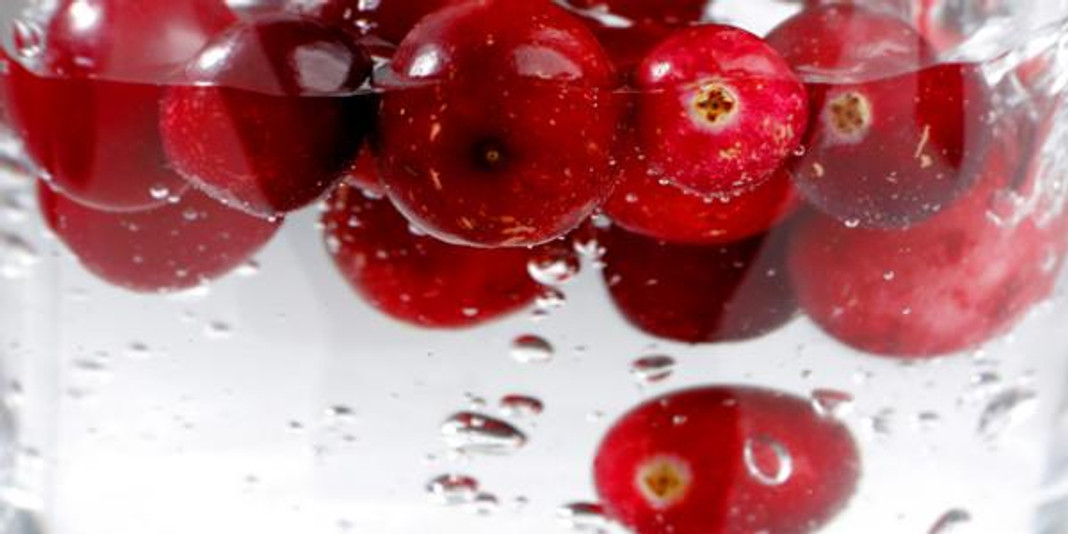
Is Drinking Cranberry Juice A Myth?
A urinary tract infection is one of the most painful infections a woman can get and the most common complaint is an intense burning sensation when trying to urinate. The most common and popular self-treatment has been the use of cranberry juice, but I believe there is a problem with cranberry juice because of its high sugar content.
The problem with Cranberry Juice
Cranberry, alongside other fruit juices, contains fructose, often referred to as fruit sugar. Fructose is a simple sugar that can cause many problems within the body including having an impact on the health of the urinary tract. If you ingest a lot of sugar, and this includes grains, which are easily converted into sugars, then this feeds the bad bacteria within the intestines and the bladder. It is for this reason that I never recommend any form of cranberry juice for urinary tract health, although I have no problem recommending cranberry capsules or tablets.
There are many cranberry supplements on the market
Nearly every herbal supplement manufacturer has a cranberry extract within their range, which presents a problem to the consumer. So which cranberry supplement should you take? Before I give the answer, it is important to understand how cranberry supplements work. Cranberries contain fructose, a carbohydrate called mannose and also a group of very specific antioxidants called proanthocyanidins (PAC’s). Recurring urinary tract infections can result in damage to the bladder walls, encouraging bacteria to attach to the walls of the bladder, where they can proliferate and cause an infection. PAC’s have the ability to block the ‘receptors’ existing on the bladder walls improving the bladder’s ability to flush away the bacteria and hence prevent infections.
The supplement that I recommend for urinary tract infections is Cysticlean. This supplement, containing PAC’s derived from the North American Red Cranberries, has one of the highest content of PAC’s on the market. This massive content of PAC’s differentiates Cysticlean from most other cranberry supplements. But there is more to Cysticlean than just its PAC content.
Pre-clinical and clinical studies demonstrated that Cysticlean has an anti-adhesive effect on E.coli, the bacteria responsible for the majority of urinary tract infections. In fact, it has an anti-adhesive on the bladder wall of up to 83%, which is the key factor when comparing cranberry supplements. It is not the strength of the cranberry extract in a capsule that governs this but the PAC content. With continuous use of Cysticlean, the bacteria lose their adherence properties allowing discharge though urination.
Clinical studies have proven that Cysticlean breaks the cycle of recurring urinary tract infections when used for between 3 and 6 months and it can be taken alongside antibiotics without any fear of side effects.
Cysticlean is also suitable for use by men and especially those with prostate enlargement. As the prostate gland enlarges, it begins to press down on the tube that carries urine from the bladder to the tip of the penis causing the classic symptoms of the urge to urinate frequently. The complications of not emptying the bladder sufficiently are recurring urinary tract infections. The use of Cysticlean can help prevent these recurring infections.
Based on the scientific studies on the efficacy of proanthocyanidins with reference to the treatment of urinary tract infections, I would have no hesitation in recommending Cysticlean for the prevention of recurring urinary tract infections in both men and women.
A cautionary word: Never substitute cranberry supplements for antibiotics, and for acute recurrent urinary tract disorders (which may be reduced by the use of an oestrogen cream), always see your GP.
DISCLAIMER: The views, opinions and information expressed in this article and on Victoriahealth.com Ltd are those of the author(s) in an editorial context. Victoriahealth.com Ltd cannot be held responsible for any errors or for any consequences arising from the use of the information contained in this editorial or anywhere else on the site. Every effort is made by the editorial and content team to see that no inaccurate or misleading information, opinion or statement appear, nor replace or constitute endorsement from medical bodies or trials unless specified. Victoriahealth.com Ltd accept no liability for the consequences of any inaccurate or misleading data, information, opinion or statement. Information on Victoriahealth.com Ltd and in the editorials is provided for informational purposes only and is not intended as a substitute for the advice provided by your physician or other healthcare professional. You should not use the information on this website or in the editorials for diagnosing or treating a health concern or disease, or for the replacement of prescription medication or other treatment.



